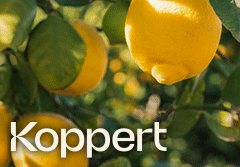Agrícola Navarro de Haro is starting the watermelon campaign with a cutting forecast of 50,000 tonnes (6,200 t in the province of Almeria alone), with an average yield of 47,700 kg/ha. Including the crops in Níjar and western Almeria, they have around 130 has, and in the Hellín region they have been able to add an extra 100 has that has allowed them to cover the reduction from other production areas. “In total, we will have around 220 has outside the province,” according to the Manager, José Navarro.
The company has taken preventive steps to face up to the drought. A strategy that has proved to be highly satisfactory. “It is not affecting us due to the changes we have made. We have increased the production hectares in other areas and we have enough cropland to maintain our sales forecasts. And we continue introducing technology in irrigation to optimise the water and fertilisers to the plant’s demand, as in previous years.” All of this is in line with their philosophy of taking great care with the quality and with customer services.
This year they are continuing to try out new varieties, production areas and they are developing an R&D project with the University of Cordoba. But there will be no important new developments. “All our efforts will be focused on making the plantations as productive as possible, with the best quality, to serve all our customers and not fall short in the supply.”
Less consumption?
At the start of the campaign, José Navarro admits that “all our hopes and desires revolve around the fact that what happened last year will not be repeated (prices); many factors came together that we could not control.” Although at present there is no certainty, “the forecasts show that consumption will drop slightly, because when shopping, we all look at the prices more, and compare. Therefore, if the prices are high, consumption could drop. It will all depend on the weather and the consumer’s economy.”
Too many certifications
For Navarro, the distribution is falling prey to an excess of certifications. “It is not normal for each supermarket chain to have a different certification, when the aim is the same. They have similar stamps, but with different names on them. The only thing that they are doing is up the requirements and it might be that the one that demands most is likely to be the one with less produce on the shelves.”










